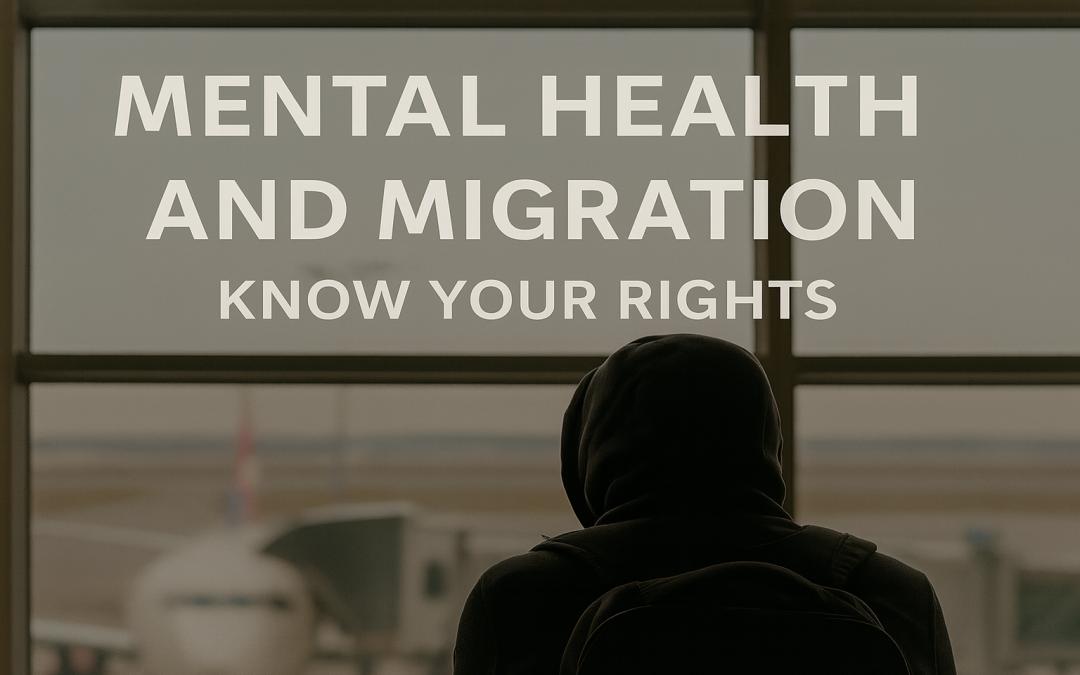Migration isn’t just about paperwork, points, or policies—it’s about people.
Behind every skilled visa, partner application, or parent reunion is a story of hope, disruption, fear, and resilience. For many migrants, the journey to Australia brings opportunity—but it also comes with emotional challenges that are often unspoken.
In this post, we want to talk openly about mental health and migration—because even the strongest migrants can feel overwhelmed, isolated, or lost.
The Emotional Weight of Migration
Whether you’re coming alone, joining a partner, or uprooting an entire family, migration involves:
- Leaving familiar support systems
- Adjusting to new laws, accents, customs
- Rebuilding identity in a foreign land
- Navigating uncertainty with visas, jobs, and housing
These aren’t small changes. They can lead to real emotional tolls, including:
- Anxiety or depression
- Culture shock
- Feelings of loneliness or isolation
- Imposter syndrome in professional spaces
“You Should Be Grateful” – But It’s Not That Simple
Many migrants feel guilt or pressure to “just be grateful” for the opportunity to live in Australia. But mental health doesn’t work that way.
Yes, you may have a visa. You may be safe. But that doesn’t mean you’re immune to:
- Missing your home
- Struggling with language
- Feeling out of place at work
- Grieving the life you left behind
Your challenges are valid. You are allowed to feel overwhelmed and still be proud of your journey.
Struggles Common Among Migrants
Here are some common mental health challenges we’ve seen in our clients over the years:
|
Issue |
Description |
|
Visa stress |
Constant worry about visa outcome, status, or PR delay |
|
Partner dependence |
Feeling financially or emotionally trapped in a visa-tied relationship |
|
Career disruption |
Loss of professional identity, underemployment, or starting over |
|
Family separation |
Long periods apart from children, spouses, or parents |
|
Language barrier |
Difficulty communicating or feeling misunderstood in daily life |
What Can Help?
- Talk to someone – a friend, counsellor, or support service
- Connect with your community – multicultural groups, meetups, migrant networks
- Stay active and involved – even walking, volunteering, or short-term study helps
- Seek professional help early – don’t wait until it becomes unmanageable
- Avoid visa misinformation – work with a trusted migration advisors for clarity
Support Services for Migrants in Australia
- Lifeline – 13 11 14
- Beyond Blue – 1300 22 4636
- Transcultural Mental Health Services (State-specific)
- Multicultural Health Services in your local area
- Cervo & Associates – we don’t just help with visas, we understand the human journey behind every application
Final Thoughts: Migration Is Not Just a Move—It’s a Transformation
It’s okay to struggle. It’s okay to ask for help. And it’s more than okay to acknowledge the emotional reality of migration.
At Cervo & Associates, we see the whole person—not just the paperwork. We advocate for a migration journey that’s not only successful on paper, but sustainable for your wellbeing.
Reach out if you need migration help, or just someone who understands the journey.
You’re not alone.


